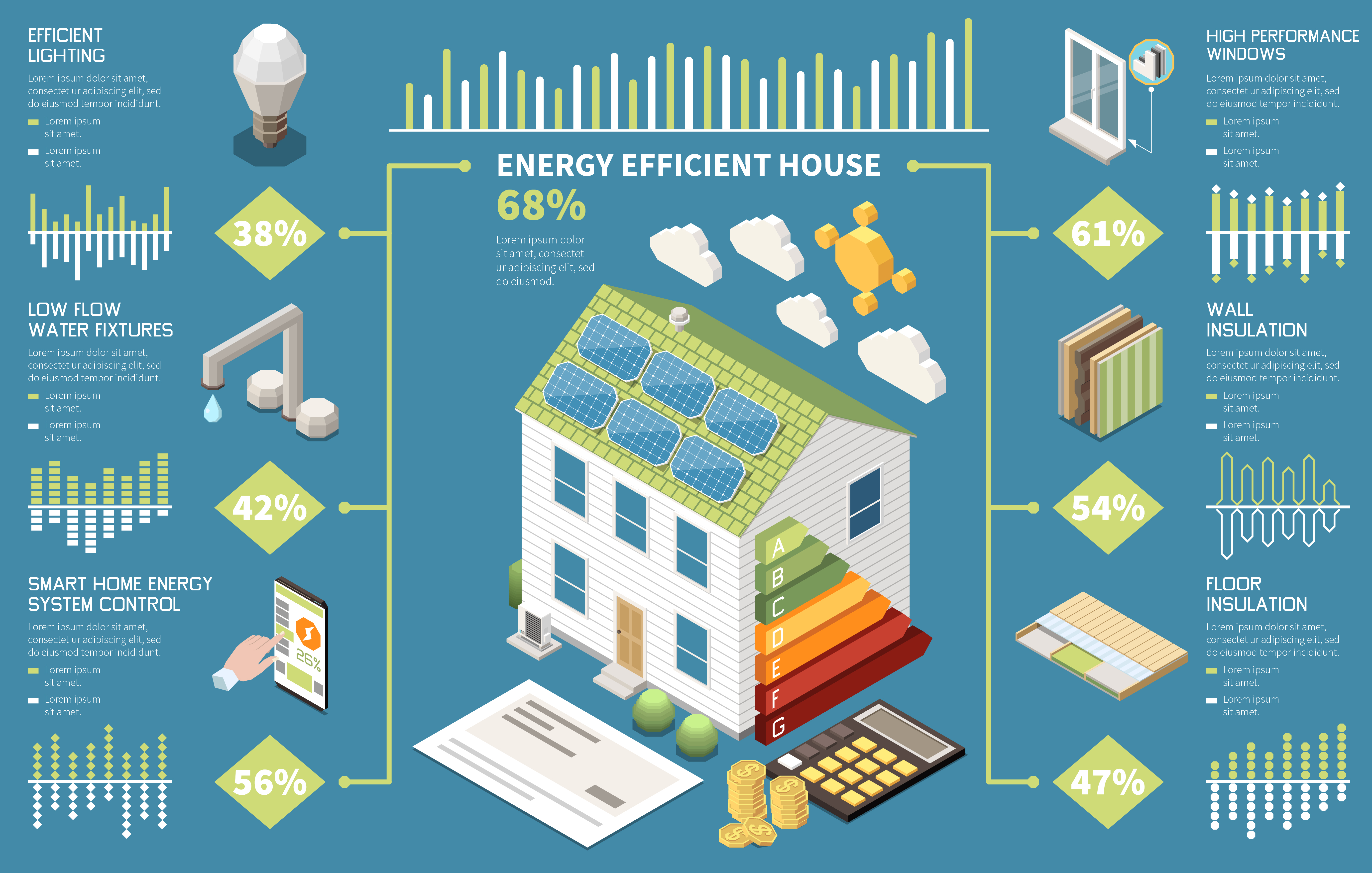Whether you're up-sizing, down-sizing, moving to a new job, or simply moving on, this guide will help you with the basics of getting on with your move.
Getting started with your home move
Mortgage
Depending on how long ago you last moved you may have an outstanding balance on your mortgage which needs taking into account.
If you're downsizing and you have enough equity in the property to purchase your new home and pay off your outstanding mortgage balance you will need to make arrangements with your mortgage lender.
If you are looking to borrow more, you'll need to speak with your existing mortgage provider to assess affordability and/or speak with other mortgage providers, including intermediaries such as Independent Financial Advisers (IFAs), to go through affordability for a mortgage.
How much equity you have in your property and your current earnings will dictate how much you can put down on your new house and will impact your loan-to-value.
Many banking websites have affordability calculators on them that will provide you with an indicative outline of what they will be prepared to lend, either to yourself or jointly with another applicant.
Don't forget, there are certain costs associated with buying property you will need to account for including stamp duty, surveys, legal fees and potentially removal fees... we will cover these a little later in the guide.
You can apply for a mortgage direct with your bank or building society, or via intermediaries such as Independent Financial Advisers (IFAs). If you do not have a property in mind, you have an idea of how much you will be looking to spend, and you can press ahead with your application to reach a decision in principle; the point at which a bank has approved your application subject to a suitable property being found.
A lot of estate agents will not allow you to put forward an offer without a decision in principle. So, it's a good idea to have that as early in your home buying search.
Find your house
Once you know how much you have to spend, you can start looking for a property to buy. Depending on your circumstances you may need the proceeds from the sale of your own property to finance the purchase of the new one.
Depending on your timescales for moving it may be prudent to wait until you have some interest in your home until looking for a new property.
Most property is advertised online although some continue to advertise through more traditional methods such as in the local newspaper. Good resources to look at are estate agent's website, online advertising, mobile apps and through dedicated property sale websites such as Rightmove, Zoopla and OnTheMarket
These websites often enable you to outline your key criteria (price, location, number of bedrooms etc) so that you can search for relevant properties.
Remember, the price listed is a guide price and a sale price can often be negotiated... so don't just draw the ceiling at what the bank will lend, have a look at properties just above your price bracket with a view to negotiating the price down.
Arranging a viewing
Once you find a property you are interested in, take a note of the Estate Agent it is being advertised through and contact them directly to arrange to go and see it. Estate Agents are usually flexible and can often offer appointments outside of traditional office hours.
During the appointment have a good look around and ask any questions you can... this is your opportunity to find out anything untoward you might need to know.
You might well be after something quite specific... 3/4 bedrooms, 2 bathrooms; or bungalow with a bit of a garden.
If you're looking in a particular location then get in the car and have a drive round and see what's for sale.
Take time to look around the property both inside and outside, and note any local amenities or infrastructure in the vicinity. You might like the house, but if it's next door to a kennels then you might find you're up all night listening to dogs bark.
Making an offer
Once you find a property you are interested in at the right price you can move to make an offer. Present this price to the estate agent either verbally or in writing. The agent must present any offer to the vendors by law.
Your offer will reflect a number of factors
- The condition of the property
- The length of time the property has been on the market
- How keen the vendors are to sell
- How keen you are to buy the property
It is not legally binding at this stage and the chances are you will end up haggling to agree a final price. Your offer may be withdrawn at any time and equally the vendors could accept a higher offer at a later date. You may be offered the opportunity to counter that higher offer should you wish.
Accepting an offer
Hopefully your offer coincides with offers on your own home if you are needing the proceeds from the sale to finance your purchase.
While this is a significant milestone in your efforts to get onto the property ladder bear in mind at this stage there is still some way to go.
If your vendors have an on-going purchase if that falls through the likelihood is the salewill be delayed while they find another property to buy; or withdrawn altogether because they were only prepared to move to that house; or your own sale falls through causing delays to the timeline.
Your estate agent will manage this process as best they can but ultimately everyone has to work together to achieve the desired outcome and at times there needs to be flexibility on timescales.
Instructing a solicitor
If you have a sale and ongoing purchase you may instruct the same solicitor to act for both. This will make the process smoother from your point of view.
The solicitor's responsibility is to transfer the ownership of the property from the existing owner to you (known as conveyancing) and making sure HM Revenue & Customs get their cut.
Critically solicitors are not responsible for looking whether a large supermarket is about to be built on the land next door, or advising whether your property could be at risk of flooding, or finding out about the structural strengths of the house.
They will be able to get hold of information so that you can review this yourself, and if this is of concern to you then ensure you request such information. Again, you will have to pay for it but it's worth it for peace of mind.
These investigations are known as searches and you will be requested to pay for these up front before your legal fees are due so make sure you've got around £300 available.
There are plenty of online price comparison sites for solicitors, or you can contact a local solicitor and find out how much they would charge.
They say you get what you pay for so be prepared for some variance in pricing and understand exactly what you get for your money. Ensure your solicitor gives you a complete breakdown of the full cost of the move. You will often find quotes broken down into the legal fees chargeable for the work done, and then any additional costs such as searches, banking charges and stamp duty.
See below details of how much stamp duty you can expect to pay.
Note; if you are purchasing an additional property, and not moving your main residence, a 3% surcharge on each of these bands is applied
| Property Price | SDLT rate |
| Up to £125,000 | Zero |
| The next £125,000 (the portion from £125,001 to £250,000) | 2% |
| The next £675,000 (the portion from £250,001 to £925,000) | 5% |
| The next £575,000 (the portion from £925,001 to £1.5 million) | 10% |
| The remaining amount (the portion above £1.5 million) | 12% |
Note; if you are purchasing an additional property, and not moving your main residence, a 3% surcharge on each of these bands is applied
| Property Price | SDLT rate |
| Up to £125,000 | 3% |
| The next £125,000 (the portion from £125,001 to £250,000) | 5% |
| The next £675,000 (the portion from £250,001 to £925,000) | 8% |
| The next £575,000 (the portion from £925,001 to £1.5 million) | 13% |
| The remaining amount (the portion above £1.5 million) | 15% |
Your solicitor will keep you up to date as the transaction progresses. So long as there are no hurdles, you will reach a point where you will need to agree a date with the vendor on which you will formally exchange contracts, legally binding you to the purchase, and completion, the day on which you agree to take complete ownership.
Instructing a house survey
Your mortgage provider will advise you they will carry out a valuation survey on the property you are purchasing to ensure it has been correctly valued; after all they will own most of it for the first few years at least!
It is advisable to instruct your own Homebuyers Survey by a RICS-approved Chartered Surveyor. A Homebuyers Survey will identify any structural defects with the property as well as any issues with damp and immediate repairs, and outline the indicative costs. A Homebuyers Survey typically costs around £400-500.
Click here to read ore about surveys
The final steps in moving house
Once you have exchanged contracts and a date has been set for completion you need to finalise your move. As part of your mortgage agreement you have signed to say you will insure the property from the day on which you formally take ownership. It is advisable you take out both buildings and contents insurance.
You will need to advise your existing utility providers (water/electricity/gas/broadband etc) of the date on which you need them to switch your services off from your existing house and on at your new property. It is advisable to take notes/pictures of gas/electricity/water (if applicable) meter readings before leaving so you can finalise the account at the od property as accurately as possible.
You will also need to ensure all your accounts, such as banking, car insurance, credit cards etc are updated with your new address.
This is the point you will be grateful for that money you saved for a rainy day. You may need a removals company to help you move. And once you have completed the purchase (and sale where applicable) you will also need to pay your legal fees and any stamp duty.
Finally, enjoy your new home! You've worked hard to get here and now you can reap the rewards!
Top Tips for a smooth home move
- Plan, plan, plan
You can never be too organised when it comes to moving. Get plenty of boxes, tape, pens (for writing on the boxes) in advance. And when you think you've got enough... get more boxes! You can start to mentally prepare each room so that when you're ready to start packing, you've got a good idea of what you want where... and what you need to leave out!
- Don't just go with the cheapest
You know this... but you're still tempted! You really do get what you pay for, so really think hard about the level of service you're going to get from the cheapest estate agent, or solicitor, or removals company etc. Don't get me wrong, there are plenty of cheap options out there that do a good job. Check review sites like Feefo, Google, TrustPilot etc for recommendations; and ask family and friends who they would or would not recommend
- Purge
Moving home is a great opportunity to get rid of anything you've been hoarding for years. Lots of possessions are sentimental so you'll definitely want to keep those... but those toys the kids have grown out of can probably go to the charity shop!
- Removals companies
If you are going to need a removals company then get quotes and do some research. Once you have chosen one make sure they are prepared. Check they have the address of the new property and check any parking restrictions. One simple idea is to mark the boxes with room numbers to a corresponding floor plans of your new home to help the removals company know where to put the boxes when they arrive.
- Redirect your correspondence address
Utility services, phones, broadband, banks, credit cards, loans, doctors, dentists, employer(s), schools... the list goes on! Make sure they know your new address... and you can use the Royal Mail's redirection service for anything you've forgotten!
- Take photos
Not just for old time's sake... if you have the TV set up in a particular way with your DVD player or Sky box, take a photo to remind yourself how to put it back together. It also helps you to remember which wires go with which device. Take photos of wall displays, picture displays or ornaments that you wish to recreate in your new home.
- Get to grips with your new house
Before you start unpacking you'll probably want to give the house a once over. You can vacuum and wipe over surfaces as you unpack. Make sure you read the meters when you move in (don't forget to read meters before you leave your old house!), find the stop cock and check the boiler... otherwise you're having a cold shower. Oh, and leave out some lightbulbs... you're welcome.
- Put important documents in a safe place
We've all done it... put something in a safe place and completely forgotten where we put it. When it comes to moving though put all your important documents (insurance documents, passports, driving license etc) together and make sure they stay with you in the car
- Beds
First thing to go up... even if you don't have kids. You might not be able to finish moving and unpacking all in one day so make sure you've got your bed ready to collapse into at the end of the day... then you're ready to continue unpacking the next day
- Food
It's a good idea to pack a packed lunch to help you get through the day... and don't worry about cooking on day one. Plan to have a take-away on the night of the move... you won't be stressed about unpacking the kitchen, or preparing and cooking anything.








